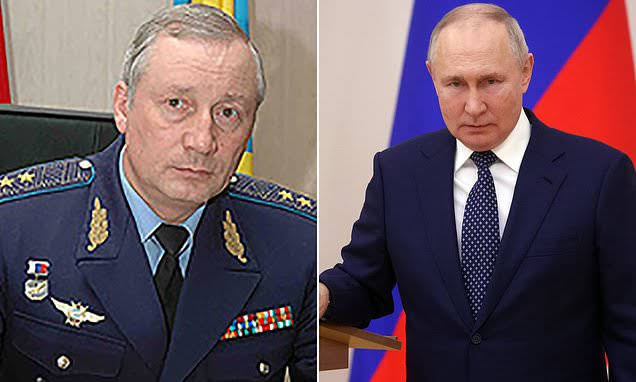In the intricate dance of international relations, Vladimir Putin, the President of Russia, finds himself navigating a complex chessboard where strategic moves and calculated risks define the game. As tensions between Russia and the West persist, the question arises: Is Putin carelessly battling the West alone, and what factors contribute to his belief in eventual victory?
Putin’s geopolitical strategy resembles a high-stakes chess game, marked by calculated moves and strategic gambits. His actions on the global stage are a reflection of a leader who understands the power dynamics at play and is willing to make bold moves to safeguard Russia’s interests.
One key aspect of Putin’s approach is his emphasis on restoring Russia’s influence and standing as a major player in global affairs. The annexation of Crimea in 2014 and Russia’s involvement in conflicts like Syria underscore Putin’s commitment to projecting strength and asserting Russia’s role in shaping the geopolitical landscape.
While the geopolitical chessboard is one arena, the economic realities underscore the challenges Putin faces. Western sanctions, imposed in response to actions like the annexation of Crimea and alleged interference in elections, have created significant financial pressures on Russia. The sanctions target key sectors of the Russian economy, restricting access to international markets and technology.

Putin recognizes the economic constraints imposed by sanctions but has sought to mitigate their impact through diversification efforts and forging strategic partnerships with other nations. The Eurasian Economic Union, which includes countries like Kazakhstan and Belarus, represents one avenue through which Putin aims to bolster Russia’s economic resilience.
Furthermore, Putin’s reliance on energy exports, particularly oil and gas, adds another layer of complexity. Fluctuations in global energy prices significantly impact Russia’s economic stability. The ongoing shift toward renewable energy sources and global initiatives to reduce dependence on fossil fuels present long-term challenges for an economy heavily reliant on energy exports.
Putin’s vision extends beyond the confines of traditional alliances, with a clear emphasis on fostering a multipolar world order. The strategic partnerships with nations like China and outreach to other non-Western actors signify a deliberate effort to reshape global power dynamics. By diversifying alliances and engaging with nations outside the Western sphere of influence, Putin seeks to bolster Russia’s position as a global power with influence on multiple fronts.
However, this pursuit of multipolarity does not imply a disregard for engagement with the West. Despite tensions, Russia remains an active participant in various international forums, showcasing a nuanced approach that combines confrontation with diplomatic engagement.
Putin’s domestic policies play a crucial role in shaping his approach to the West. Maintaining popular support is essential for any leader, and Putin has skillfully utilized a narrative of national pride and identity to garner backing from the Russian populace. The annexation of Crimea, framed as protecting Russian-speaking populations, resonated with sentiments of national unity.
Moreover, Putin’s leadership style, often characterized by a strongman image, aligns with perceptions of strength and stability. While this approach may face criticism internationally, it has proven effective in consolidating power domestically.
In the contemporary geopolitical landscape, battles are not only fought on physical fronts but also in the realm of information. Putin’s government has been accused of engaging in disinformation campaigns, cyber warfare, and meddling in foreign elections. These tactics are not just about sowing discord in rival nations but also about shaping the narrative and influencing public opinion.
The weaponization of information allows Putin to control the narrative, both domestically and internationally. By crafting a narrative that portrays Russia as a defender of traditional values and a bulwark against Western encroachment, Putin aims to maintain support at home and present a resilient image on the global stage.
As Putin navigates the complexities of battling the West, it is essential to recognize the element of pragmatism in his approach. The Russian leader is acutely aware of the limitations and challenges his nation faces. The pursuit of victory is not necessarily framed in terms of a definitive triumph over the West but rather in securing Russia’s interests, maintaining its sovereignty, and preserving its status as a significant global actor.
Putin’s calculus includes a long-term perspective that extends beyond immediate challenges. Whether it involves securing strategic partnerships, managing economic pressures, or engaging in information warfare, each move is a piece in the larger puzzle of safeguarding Russia’s position in an ever-evolving geopolitical landscape.
In the grand theater of global politics, Vladimir Putin stands as a formidable player, skillfully navigating the intricacies of a shifting paradigm. The question of whether he is carelessly battling the West alone belies the calculated and pragmatic nature of his leadership.
The chessboard upon which Putin plays is dynamic, with pieces moving in response to geopolitical shifts, economic challenges, and the ever-present specter of information warfare. Victory, in Putin’s terms, may not be a definitive triumph over the West but rather the preservation of Russia’s interests, influence, and national identity.
As the geopolitical landscape continues to evolve, Putin’s leadership will be defined by adaptability, strategic acumen, and a nuanced understanding of the multifaceted challenges facing Russia. The outcome of this geopolitical chess game remains uncertain, but what is clear is that Putin’s calculations are driven by a desire to secure Russia’s place in a complex and ever-changing world.











